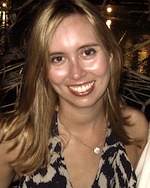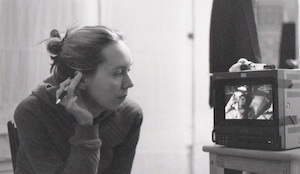Today’s First Person article comes from the open call. Jay Faerber is trying to transition from writing comics to writing TV, and is doing so with the help of the Warner Bros TV Writers Workshop.
——–
![]()
 My name’s Jay Faerber.
My name’s Jay Faerber.
I’m 38 years old and I’ve been writing comic books professionally for the past 13 years.
It’s a great, fun job and incredibly fulfilling. But in addition to comics, I’ve got a great love for television, so I’m finally taking the plunge and becoming a TV writer.
This wasn’t a decision I made lightly. In fact, I spent considerable time coming up with reasons not to try my hand at TV writing. I guess I was a little afraid that working in TV could destroy my enjoyment of TV as a viewer. Because despite writing comic books, I read very few comic books these days. The late Robert B. Parker explained it well when he said, “I tend to look at books the way carpenters look at houses.”
My secret origin
—–
Because I didn’t want to ruin my love of TV by writing TV, I was content to let my manager shop around my comic books as movie and TV properties, and attach other writers. One of these writers was a baby feature writer who was adapting one of my comics as a feature spec.
Some writer friends of mine asked why I wasn’t writing the spec myself. After all, they were my characters and this baby writer wasn’t bringing a huge reputation to the table. So why not just do it myself?
And that’s what got me started. I remember very clearly the conversation that ensued, and by the end of it I was incredibly energized about trying to transition from comic books into features and TV. So I wrote a feature spec of my comic, Dynamo 5. Adapting my own work was a great way to make the jump into screenwriting. I was kind of intimidated by the format and “rules” of a screenplay, but the pressure was less because I already knew the characters and story so well. Nothing ever came of it, but it was a great exercise.
The more I thought about it, the more I realized my real interest was in TV, not features. I liked the chance to spend a lot of time — maybe years — with a set group of characters. I also liked that in TV, writers write. Feature writers take a lot more meetings and tinker with the same script for a huge chunk of time. With TV, you gotta get stuff done fast so it can be filmed a couple weeks later. I’m used to that kind of pace because of my comic book background, so it was more appealing to me.
Over the next summer I wrote a pilot that my manager showed to a few producers. We got good feedback on the writing, but we were told nobody would be interested in the premise. What was the premise, you may be asking? It was about Internal Affairs cops. And shortly after we decided to shelve it and try something else, Lifetime bought a pilot called Against the Wall, and it was about … Internal Affairs cops. Which proved that at least my instincts weren’t terrible.
Getting on the playing field
—-
The following spring I decided to try to get into one of the TV writing programs. Most networks and TV studios have them, including
* NBC/Universal’s [Writers on the Verge](http://www.nbcunicareers.com/earlycareerprograms/writersontheverge.shtml)
* The [ABC/Disney Writing Program](http://abctalentdevelopment.com/programs/programs_writings_fellowship.html)
* The Warner Bros [TV Writers Workshop](http://writersworkshop.warnerbros.com/), and
* The CBS Writers [Mentoring Program](http://diversity.cbscorporation.com/page.php?id=23).
I applied to the first three, because the CBS program is very diversity driven, and as a white guy, I didn’t see the point in applying.
I wrote a Burn Notice spec, just because it’s a show that’s been around long enough that most people at least have some familiarity with it, and it fits in with my sensibilities.
All three programs I applied to required not only a spec, but also some sort of essay question about my background, and what I’d bring to a writers room.
I leaned pretty heavily on my experience as a comic book writer, since there’s a lot of crossover between the two mediums. Both, for instance, involve telling stories visually. In comics, it’s drilled into us to avoid having two characters simply stand around talking. It’s much more visual if they’re doing something while they’re talking.
That’s why all those old Chris Claremont X-Men stories featured so many scenes of the X-Men in the Danger Room. Most of those scenes were really just exposition scenes, but they were much easier to swallow when the X-Men delivered them while fighting big robots or whatever. And while comics use caption boxes and, to a lesser extent these days, thought balloons, they’re still mainly dialogue driven — just like TV.
In fact, I find certain aspects of screenwriting to be easier than comics. With a comic book script, you have to be constantly mindful of how much an artist can fit into a single panel, or a single page. With a screenplay, you don’t have those constraints.
But you have others. In comics, it doesn’t cost any more to show a planet exploding than it does to show two people talking. (In fact, your artist will likely have more fun drawing the exploding planet!) In film and TV, there’s a huge difference between the two.
Honestly, I kind of thought if I got into any of the programs, it would be the NBC/Universal Writers on the Verge. Two reasons: One, I wrote a Burn Notice, which is an NBC/Universal show. And two, one of my comics (Noble Causes) was optioned by NBC/Universal a few years ago. But the NBC/Universal notification period came and went and I never heard a peep.
A few weeks later, I was completely surprised by a phone call from Warner Bros, asking me to come in for an interview. I was living in Seattle at the time, so I hopped on a plane to LA, where I had an interview with Chris Mack, the head of the workshop. A WB Current Executive was also present in the interview. We talked for awhile about my background, and why I like TV, and what shows I watch, that kind of thing. All in all it was a pretty casual, low key kind of interview.
I flew back to Seattle the next day and spent the next two weeks ticking days off the calendar, since Chris had said to expect an answer in two weeks. And it was exactly two weeks later when he called to said I’d been accepted.
I then had another two weeks to get myself relocated to LA in time for the first workshop. I know John has had entire blog entries devoted to moving to LA, so I’ll keep this brief.
I think having such a time constraint actually helped in this case. I just threw my two cats in my car, packed a few things, and drove south. I jotted down a few addresses from Craigslist and literally took the second apartment I looked at on the day I arrived in LA. I settled in Sherman Oaks, since I have friends in the area and it’s an easy commute to Burbank. I attended the first workshop, then flew back up to Seattle the next morning, packed up the rest of my belongings, and made the long drive south again in a moving truck and was back here in time for the following week’s workshop.
How the workshop works
—–
The workshop meets once a week, on Wednesday evenings, for about three hours. There are nine of us in this year’s group, although there are really only eight spots (since two guys work as a writing team). There are seven men and two women, and we range in age from mid-20s to late 30s. We’re all white, except for one African-American.
In terms of backgrounds, it’s much more diverse. We have one former child actor. A few people have worked (or are working) as writers assistants on various shows. One has previously written and acted in a cable show. One is a playwright. Two people work as copywriters at an ad agency. One works as a producer on a reality TV show.
I’d say the one thing we all have in common, aside from our love of TV, is some sort of previous experience in entertainment or writing of some kind. I doubt that’s a coincidence. While the workshop doesn’t require previous experience, it sure looks like it’s helpful.
I’ll also point out that I’m the only one in the workshop who relocated from another part of the country. I don’t know how many applicants they received from across the country, and I don’t know if I’m considered an exception or not. But I made it abundantly clear in both my application materials and the interview that I was ready and willing to relocate.
Once the program got under way, each of us wrote a new spec in a simulated writers room-type environment. We got notes from everyone in the group, plus our instructors, and had to hit deadlines for our beat sheets, outlines, first draft, second draft, etc.
Writing our specs took up about half the time of the program. The other half has been lectures on all aspects of the TV industry, from various guest lecturers with firsthand experience.
We’re encouraged to go out for drinks each week after the workshop and bond as a group. And we really have bonded.
As I write this, we’re at the tail end of the program. It started the first week of November and ends the first week of April. We’re starting to get sent around on meetings (which are arranged by the head of the workshop).
One of my classmates has already been staffed, and I’ve been sent on one showrunner meeting and one general meeting so far. It’s an incredibly exciting time.
Sometimes I need to pinch myself when I think of how much my life has changed in the past four months. I went from sitting in my home office in cold, rainy Seattle, writing comic books, to driving onto the Warner Bros lot each week, where I get to talk TV with some amazingly talented writers.
 I’m a working writer in Los Angeles. Those are beautiful words to say. Now there’s a lot of doom and gloom rants, discouraging statistics and articles regarding women in the industry — if you want that, don’t look at me. I love being a female writer in Los Angeles!
I’m a working writer in Los Angeles. Those are beautiful words to say. Now there’s a lot of doom and gloom rants, discouraging statistics and articles regarding women in the industry — if you want that, don’t look at me. I love being a female writer in Los Angeles! Budget, logistics, stunts, company moves, clearances, censorship can rapidly change a script. Coming from film school, I knew all the steps involved to make a script come to life. I had built sets, hung lights, set-up craft service, held the boom mic, loaded film, managed budgets, rented costumes. When I showed up on the Mean Girls 2 set (directed by the fabulous Melanie Mayron) and saw the lead character’s house decorated for Halloween, the gravity of the moment hit me.
Budget, logistics, stunts, company moves, clearances, censorship can rapidly change a script. Coming from film school, I knew all the steps involved to make a script come to life. I had built sets, hung lights, set-up craft service, held the boom mic, loaded film, managed budgets, rented costumes. When I showed up on the Mean Girls 2 set (directed by the fabulous Melanie Mayron) and saw the lead character’s house decorated for Halloween, the gravity of the moment hit me.